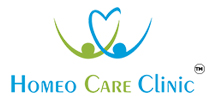Chemotherapy Hair Loss: Causes, Stages & PRP Treatment Benefits
One of the more tangible and emotionally difficult side effects of cancer treatment is hair loss. For many people, it’s not so much that it’s about losing their hair—it’s about losing a sense of identity, confidence, and normalcy. But if you know why it occurs and how you can take care of yourself in the process, it can make the experience softer.
Why Does Chemotherapy Cause Hair Loss?
Chemotherapy induced hair loss
Chemotherapy medications are created to destroy rapidly dividing cells, as cancer cells grow quickly. Unfortunately, our hair follicles are some of the fastest dividing cells in the body.
Thus, although the treatment is aimed at cancer, it tends to harm hair growth too, causing temporary hair loss.
Hair will not only be lost from the scalp but also from the eyebrows, eyelashes, armpits, and other areas of the body.
The severity is different for everyone—some lose tiny areas, and others go entirely bald.
Natural ways to Prevent Hair Loss during Chemotherapy
Caring For Your Hair and Scalp During Chemotherapy
- Gentle treatment can make a huge difference to your comfort and self-confidence.
- Be Gentle with Your Scalp
- Shampoo using mild, fragrance-free shampoos and soft towels.
- Brush gently or avoid brushing altogether.
- Don’t pull your hair back tightly into small plaits or buns.
- Moisturise the scalp with natural oils such as coconut or almond oil.
- Keep your head covered against the sun and cold—your scalp gets sensitive
What Chemotherapy Causes Hair Loss ?
Baldness (also referred to as alopecia) relies on how drastically a specific chemotherapy medicine impacts rapidly proliferating cells, such as those in the hair follicles. Certain medications lead to complete baldness, while others can bring about thinning or no noticeable change whatsoever.
Let’s make this clearer:
-
Medicines Most Likely to Cause Severe Baldness
These drugs typically result in total hair loss on the scalp and occasionally even eyebrows, eyelashes, and body hair.
Doxorubicin (Adriamycin)
Daunorubicin
Epirubicin
Cyclophosphamide (Cytoxan)
Ifosfamide
Etoposide
Docetaxel (Taxotere)
Paclitaxel (Taxol)
Vincristine and Vinblastine
Actinomycin-D (Dactinomycin)
These medications are more often used to treat breast cancer, ovarian cancer, lymphoma, leukemia, and sarcomas—hence the hair loss in such patients.
-
Drugs That May Cause Partial Hair Thinning
Some drugs result only in mild to moderate thinning of scalp hair instead of overall baldness.
Examples are:
Fluorouracil (5-FU)
Methotrexate
Carboplatin
Cisplatin
Topotecan
Irinotecan
The hair can thin out or become brittle but not as much baldness is associated with these.
-
Drugs That Rarely Cause Hair Loss
A few newer, targeted, or mild chemotherapy drugs have very little or no effect on hair:
Hydroxyurea
Chlorambucil
Targeted therapy and immunotherapy (such as trastuzumab, pembrolizumab, or rituximab) produce little hair loss, although some can make your hair brittle or dry.
-
Combined Chemotherapy
If a combination regimen involves more than one drug, hair loss might be more significant since the effects are cumulative.
Breast cancer regimens of doxorubicin + cyclophosphamide + paclitaxel are classic examples that commonly result in complete hair loss.
Chemotherapy Hair Loss Treatment
Chemotherapy takes a great deal from an individual — physically, emotionally, and even physically. Among the toughest visible impacts is hair loss. After treatment has stopped, most individuals anxiously await for hair to reappear. Sometimes, however, regrowth occurs slowly, unbalanced, or less than it was.
This is where PRP therapy (Platelet-Rich Plasma) can step in and provide a gentle, supportive hand during the recovery process.
What is PRP Therapy?
PRP (Platelet-Rich Plasma) is a non-surgical treatment that utilizes your own blood to stimulate hair growth naturally.
The blood is taken in a small quantity and processed in a machine to isolate the platelet-rich plasma , a golden layer of growth factors.
These growth factors are what heal tissues, fix cells, and activate dormant hair follicles.
The plasma is injected into the scalp where there is hair loss.
How PRP Benefits After Chemotherapy
Hair follicles tend to get into a state of “rest” after chemotherapy. PRP helps stimulate them from this state by enhancing blood flow and nutrient supply for natural regrowth.
Here’s how it aids recovery:
1. Encourages new hair growth by stimulating dormant follicles.
2. Enhances scalp health and blood flow.
3. Thickens new hair strands, making them stronger over time.
4. Dissolves chemical stress-induced inflammation in the scalp.
5. Boosts confidence, as observable regrowth improves psychological wellbeing.
When Can PRP Be Started After Chemotherapy?
PRP is not done during active chemotherapy.
It should be considered only after treatment is complete and when your oncologist confirms that:
Blood counts (especially platelets) are back to normal.
The scalp skin is healthy and free from infection.
Your body has recovered enough to tolerate the procedure.
In conclusion, Hair PRP Treatment Pune, led by Dr. Vaseem Choudhary and his experienced team at Homeo Care Clinic, is dedicated to providing advanced and effective PRP therapies for both hair and skin rejuvenation. Our goal is to help you feel confident and look your best with treatments designed to address hair thinning and skin concerns naturally. We believe in offering personalized care and creating customized plans to meet each individual’s unique needs, ensuring the best possible results.
To schedule an appointment or learn more about our treatments, please visit our website or call us at +91 9595211594. Our friendly team is here to support you throughout your journey to healthier hair and radiant skin. If you’re looking for the best PRP treatment clinic, we are here to assist.
Follow us on Facebook and Instagram for expert tips+91 9595211594 and insights into PRP treatments and holistic care.
Have questions about hair loss, skin concerns, or PRP therapy? Click to send us a WhatsApp message, and our experts will be happy to assist you or you can book an appointment by clicking here.
You can also connect with us through E-Mail: drvaseemchoudhary@gmail.com and our Doctor will get back to you within 1-2 working days

